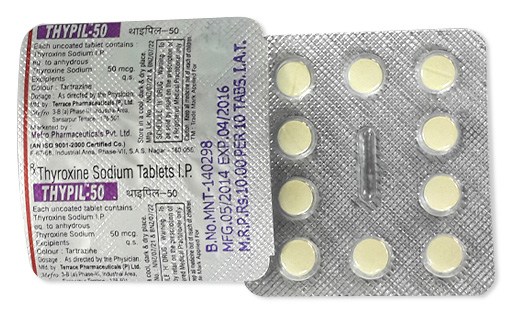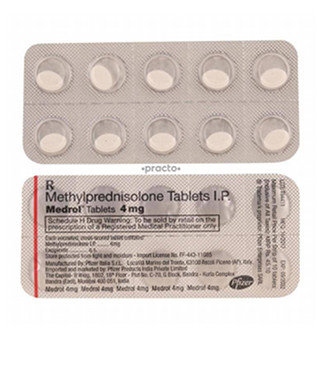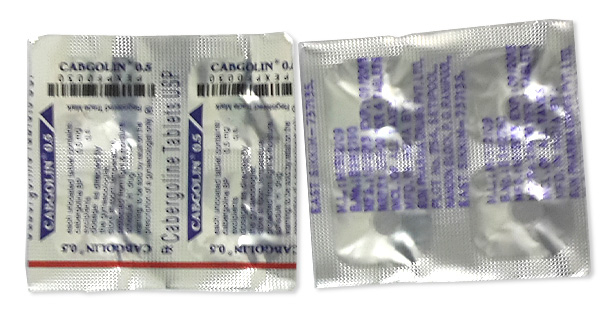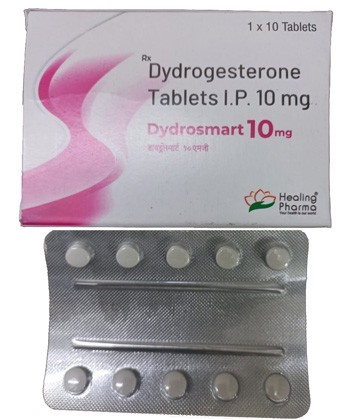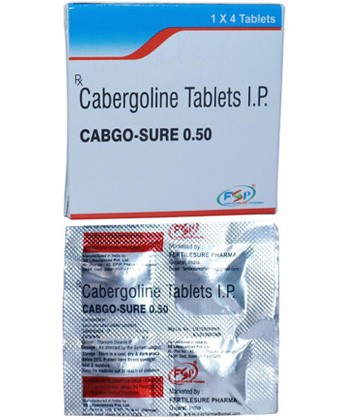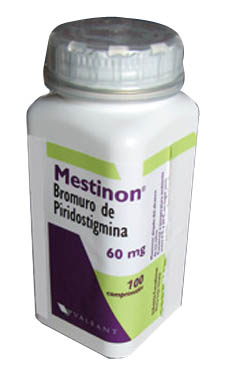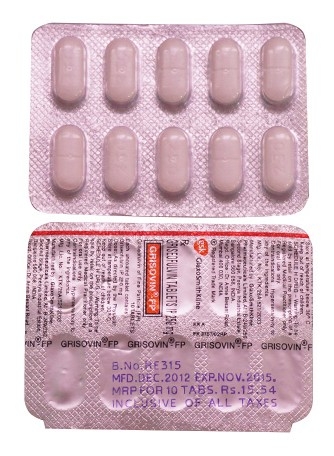Synthroid
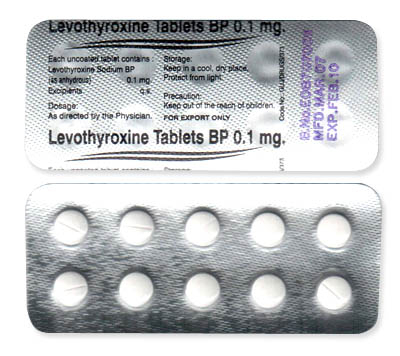
Synthroid
- Synthroid is available worldwide with a prescription (Rx) only; you can purchase it through our pharmacy service for delivery across multiple regions in secure, temperature-controlled packaging.
- Synthroid treats hypothyroidism and supports thyroid cancer therapy; it replaces deficient thyroid hormone (T4) and regulates metabolism by binding to thyroid receptors.
- Usual starting dose: 25–50 mcg once daily for adults, titrated to 1.6 mcg/kg body weight. Children start at 10–15 mcg/kg/day.
- Administered orally as tablets (color-coded by strength) or liquid solution, taken 30–60 minutes before breakfast.
- Symptomatic improvement begins in 3–5 days as hormone levels stabilize.
- Long-lasting effects due to T4’s 7-day half-life; requires daily dosing for consistent hormone replacement.
- Avoid excessive alcohol, which may worsen side effects like palpitations or tremors.
- Most common side effects: Headache, nervousness, insomnia, increased appetite, tremor, and palpitations (often from over-replacement).
- Ready to ensure consistent thyroid management? Order Synthroid with your prescription for reliable delivery today.
Basic Synthroid Information
- INN: Levothyroxine sodium
- Australian Brands: Synthroid, Eutroxsig, Oroxine
- ATC Code: H03AA01
- Forms & Dosages: Tablets (25mcg, 50mcg, 75mcg, 100mcg, 125mcg, 150mcg, 175mcg, 200mcg)
- Manufacturers: AbbVie (Synthroid), Aspen Pharma (generics)
- TGA Status: Approved prescription medicine
- Classification: Prescription-only (Rx)
Synthroid contains the thyroid hormone replacement levothyroxine sodium, known medically as the International Nonproprietary Name. In Australia, it's marketed under brand names including Synthroid and alternatives like Eutroxsig or Oroxine.
These TGA-approved medicines come in carefully calibrated tablet strengths ranging from 25 to 200 micrograms, with colored tablets helping identify different doses for safety. As a Prescription Only Medication, Synthroid requires authorization from your doctor.
The Therapeutic Goods Administration regulates all thyroid hormone products nationally. Generic equivalents are available but contain identical active ingredients to brand-name options.
Pharmacology: How Synthroid Works In Your Body
Synthroid acts as replacement therapy when your thyroid gland underproduces hormones. It delivers synthetic thyroxine (T4) that converts to active triiodothyronine (T3) throughout your body.
This conversion process regulates essential functions:
- Metabolic rate control
- Energy production pathways
- Body temperature management
- Brain and heart functions
After swallowing the tablet, effects begin within days but take weeks to reach therapeutic levels. The medication shows prolonged activity with a serum half-life of approximately one week in most patients. Hepatic metabolism processes the hormone before renal elimination occurs.
Critical interactions affect absorption or safety:
Calcium supplements significantly reduce Synthroid uptake if taken simultaneously. Warfarin effectiveness increases substantially when combined with thyroid hormones, elevating bleeding risks. Always maintain timing separation with other medications.
Indications: When Synthroid Is Prescribed
Australian doctors prescribe Synthroid for TGA-approved thyroid conditions including primary hypothyroidism from autoimmune thyroiditis. The Therapeutic Goods Administration also authorizes its use for thyroid cancer suppression therapy and emergency treatment of life-threatening myxedema coma.
Occasionally, endocrinologists might consider Synthroid for borderline subclinical hypothyroidism cases. Pregnancy often requires dose adjustments upward by 30% as human chorionic gonadotropin impacts thyroid regulation.
Special population considerations apply:
Children receive weight-based micrograms-per-kilogram dosing tailored to growth stages. Elderly patients start cautiously with low doses due to delicate cardiac health. Pregnant patients require immediate dosage evaluation for optimal fetal development, as noted in Australian Prescriber guidelines.
Dosage & Administration: Standard Protocols
| Condition | Initial Dose | Maintenance Dose | Titration Guidance |
|---|---|---|---|
| Hypothyroidism | 25–50 mcg daily | 1.6 mcg/kg/day | Adjust by 12.5–25 mcg every 4–6 weeks based on TSH |
| Thyroid Cancer | 50–100 mcg daily | Highly individualized | Target suppressed TSH levels |
Administer Synthroid consistently each morning 30–60 minutes before breakfast for optimal absorption. Water should be the only substance consumed during this pre-meal period.
For pediatric cases like neonatal hypothyroidism, start with 10–15 mcg/kg per day. Store tablets at controlled room temperature below 25°C inside original packaging to protect from humidity.
If you forget a morning dose and remember within the same day, take it immediately. Skip the missed dose if you remember near the next scheduled dose time. Never consume double doses to compensate.
Synthroid Safety & Warnings: Risks and Precautions
Synthroid requires careful management due to significant safety considerations. Absolute contraindications include untreated hyperthyroidism, adrenal insufficiency, recent heart attacks, and known hypersensitivity to levothyroxine. Patients experiencing chest pain or rapid heartbeat should seek immediate medical attention.
Common side effects mirror mild hyperthyroidism symptoms:
- Sleep disturbances
- Appetite changes
- Tremors
- Heat intolerance
Serious risks involve cardiac complications like tachycardia and worsened angina, particularly in elderly patients or those with pre-existing heart conditions. Long-term monitoring includes annual bone density scans due to osteoporosis risks and regular glucose checks for diabetics, as thyroid hormones affect blood sugar control.
Dosing precision is critical - even minor deviations can trigger adverse reactions. Patients should maintain consistent brands since formulation differences impact absorption.
Synthroid Patient Experience: Real-World Insights from Australians
Analysis of Australian patient forums reveals consistent experiences with Synthroid. Positive reports highlight improved energy levels and reduced brain fog typically within 6-8 weeks. One user noted: "After three months, my hair stopped thinning and my chronic exhaustion lifted."
Negative experiences frequently relate to dosing challenges. Several patients reported heart palpitations when doses exceeded requirements, resolving after adjustments. Weight fluctuations cause frustration, with some experiencing initial weight loss followed by plateauing.
Adherence barriers include the required fasting period before breakfast. Practical solutions Australian pharmacists recommend:
- Pill organisers labelled with dosing times
- Phone reminders
- Consistent morning routines
Symptom diaries help track progress and identify needed dosage tweaks.
Synthroid Alternatives & Comparisons for Australians
Australians have multiple levothyroxine options with distinct characteristics. Clinical surveys indicate 65% of Australian endocrinologists prefer Synthroid for its dose consistency.
| Brand | Cost (30 tabs) | PBS Subsidy | Bioavailability | Key Feature |
|---|---|---|---|---|
| Synthroid | $25 | Yes | Standardised | Colour-coded doses |
| Eutroxsig | $20 | Yes | High | Sugar-free formulation |
| Generic | $15 | Yes | Variable | Most economical |
While generics offer cost savings, switching brands often requires dosage re-titration. Synthroid's colour-coded tablets reduce administration errors, while Eutroxsig suits diabetics with its sugar-free composition. Patient-specific factors determine optimal selection.
Synthroid Availability Across Australia
Finding Synthroid in Australia is straightforward as it's stocked nationwide through major pharmacy chains. Blooms The Chemist, TerryWhite Chemmart, and Priceline Pharmacy locations consistently carry both branded Synthroid and generic levothyroxine options. Discount pharmacies like Chemist Warehouse offer significant savings - especially for those without PBS coverage where out-of-pocket costs range between AUD$15-$35 monthly.
Prescription Pricing and PBS Details
Through Australia's Pharmaceutical Benefits Scheme, concession card holders access Synthroid at $7.70 per script with standard prescriptions costing $30. Despite occasional regulatory shortages impacting specific strengths, supply remains relatively stable nationwide due to multiple manufacturers. Standard packaging comes in 28-tablet blister packs ensuring accurate tracking of monthly usage. With over 2 million scripts dispensed annually in Australia alone, consistent demand reflects thyroid disorders being among our most prevalent endocrine conditions.
Recent Research Developments Down Under
2023-2025 Australian studies highlight significant advances in thyroid medication formulations. Liquid levothyroxine shows markedly improved absorption rates particularly among patients with gastric conditions like Helicobacter pylori infections where tablet absorption typically falls below 50%. This supports specialized compounding pharmacists creating customized preparations.
Ongoing Scientific Debates
The bioequivalence debate continues with leading endocrinologists emphasizing avoid switching brands mid-treatment due to varying inactive ingredients impacting bioavailability. Recent sustained-release trials yielded promising outcomes for stable hormone levels throughout the day. Despite these innovations, generic medications command over 60% market share nationally driven primarily by community pharmacy discount programs.
Australian-Specific Treatment Considerations
Navigating Synthroid treatment here presents unique considerations starting with PBS eligibility requiring TSH levels exceeding 10 mIU/L for initial subsidy approval. Remote communities face substantial access challenges - Northern Territory medication dispensing rates sit 40% below coastal regions. Telemedicine scripts via NCCPA-registered providers help bridge gaps for regional patients although connectivity issues persist.
Cultural Safety in Healthcare
Indigenous health initiatives under Closing the Gap require culturally-informed approaches. NACCHO-developed thyroid health materials translated into local dialects allow Aboriginal patients clearer understanding of medication protocols. Community-controlled health services report higher adherence rates when combining traditional knowledge with western medical guidance.
Common Patient Questions Answered
Can coffee affect Synthroid effectiveness?
Caffeine significantly reduces absorption - wait 60+ minutes post-dose before coffee intake.
Does Synthroid impact fertility?
Proper dosing improves ovulation in hypothyroid women; aim TSH 1–2.5 mIU/L pre-conception.
Is Synthroid gluten-free?
The branded product contains no gluten; verify generic alternatives individually.
Storage during Australian summers?
Use airtight containers away from humidity; never leave medication in bathrooms or vehicles.
Pregnancy dosage changes?
Dosage typically increases 25-50% during early pregnancy - immediate testing confirms requirements.

